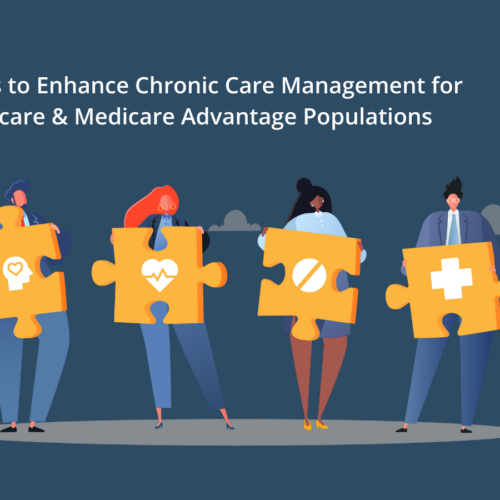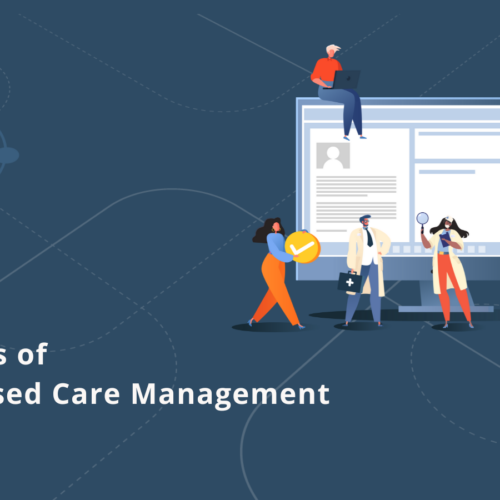Member engagement is about more than higher Medicare Star Ratings and keeping member bases loyal. A highly engaged health plan member is one who is actively involved in their health and wellness, and one who is more likely to adhere to care plan instructions, treatment, and medication regimens, and prioritize improving their overall state of health and well-being. Today, Medicare beneficiaries...
Category: Value-Based Care (VBC)
Developing the Future of Care
Q&A with CEO and Founder Adam Sabloff and Vice President of Product Management Marcus Caraballo. The healthcare industry is evolving. As more and more organizations seek to implement a value-based care approach, many are realizing the importance of data interoperability, whole-person health, and the need to address and solve for social determinants of health (SDOH)....
How to Improve Care for Members with Medicare Who Need Long-term Services and Supports (LTSS)
This is the first article in a six-part series exploring ways to improve the delivery of whole-person, value-based care to Medicare and Medicare Advantage populations. Here, we dive into our first area of focus: ensuring optimal care for members who need long-term services and supports (LTSS), for which Medicare does not provide comprehensive coverage. You...
How to Address Behavioral and Mental Health in a Whole-Person Care Approach
Behavioral health and mental health conditions are highly prevalent across generations. About 11% of adults and 3% of youth had alcohol use disorder and 21% of U.S. adults had a mental health condition such as depression, anxiety, or schizophrenia a 2020 National Survey on Drug Use and Health found. More recently the U.S. Department of...
6 Ways to Enhance Chronic Care Management for Medicare & Medicare Advantage Populations
Improve Health Outcomes, Drive Member Engagement, and Reduce Costs Complex and chronic conditions are commonplace among Medicare populations, and one of the most expensive drivers of healthcare spending. In 2017, an estimated 66 percent of all non-dual-eligible Medicare beneficiaries were living with two or more chronic conditions. In 2020, data from the Chronic Conditions Data...
Track 2 of the Making Care Primary Model: Integrating & Expanding Care Services
Track 2: Implementing Advanced Primary Care CMS’ recently announced Making Care Primary (MCP) model advances the agency’s drive to shift from a fee-for-service model to a value-based care model. The MCP model takes a tiered approach, with three tracks of participation. This progressive structure is intended to enhance coordination of care and unlock better health...
How to Get Started with the Making Care Primary Model
Track 1: Building the Infrastructure for Better Value-Based Primary Care CMS recently announced its new Making Care Primary (MCP) model, a voluntary initiative set to launch in July 2024 among selected participants in eight states. As of September 2023: “CMS is working with State Medicaid Agencies in eight states – Colorado, North Carolina, New Jersey,...
How Can Accountable Care Organizations Address the Data Silo Challenge?
Nearly a decade ago, a Forbes contributor referred to data silos as “a medical tragedy.” Jump forward 10 years and we still have data silos. And the very real human consequences they create such as suboptimal health outcomes related to missed or delayed diagnoses, medical errors, and missed opportunities to provide the right care at...
6 Things Accountable Care Organizations Should Look for in a Medical Management Platform
Medical management platforms can help accountable care organizations (ACOs) meet core goals related to providing highly coordinated, value-based care. For example, software with automated workflows and data centralization capabilities helped ACOs increase primary care services and wellness rates among members while reducing emergency department visits, hospital readmissions, and overall costs, according to a 2017 report...
Three Essentials a Value-Based Care Management Platform Must Have
Your patients (health plan members) are the driving force behind everything you do. And with the gradual shift over the past two decades from volume-based, fee-for-service payment models to value-based care and managed care models, your team is finally able to focus on each patient as a whole. The only thing that could possibly get...











